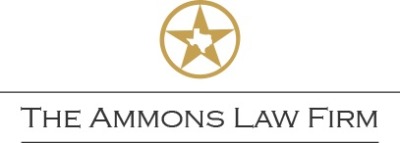Complex Insurance Coverage in Truck Accident Cases
Truck accidents often involve multiple parties and overlapping insurance policies. A single commercial truck may have separate policies for the tractor, trailer, and cargo, while brokers or shippers can also carry additional coverage. Identifying which policy applies requires careful investigation into the cause of the crash and the parties involved.
Even though the Federal Motor Carrier Safety Administration (FMCSA) establishes minimum insurance requirements for commercial carriers, these limits may fall short when severe injuries occur. Understanding the layers of coverage available is critical to ensuring that victims can pursue full financial recovery.
Consulting experienced truck accident attorneys can help clarify which policies apply and protect your claim from the start.
How Trucking Insurers Respond to Claims
Insurance companies that represent trucking carriers are supported by legal teams focused on minimizing payouts. They may request recorded statements, delay claim processing, dispute medical treatments, or argue over liability when multiple policies are in play.
Rapid response teams are often deployed by trucking companies immediately after a crash to secure evidence in their favor. Without prompt legal intervention, key materials—such as driver logs, black box data, and maintenance records—can be lost or destroyed.
Working with knowledgeable personal injury lawyers helps ensure evidence is preserved, claims are documented thoroughly, and communications with insurers are handled in a way that safeguards your rights.
Key Evidence in Truck Accident Insurance Claims
Proving liability in a trucking collision often requires more than a police report. Strong evidence may include:
Black box data from the truck’s electronic control module
Hours-of-service records revealing possible violations
Driver history files showing prior safety issues
Maintenance and repair logs documenting recurring defects
Cargo records indicating improper loading or securement
Because some records are only retained for a limited time under federal regulations, acting quickly is essential. The FMCSA offers guidance on safety standards that may support a claim.
A skilled truck accident lawyer can coordinate expert analysis of this evidence to help establish liability and strengthen a claim.
Maximizing Insurance Recovery After a Truck Accident
Serious injuries often result in medical expenses, lost wages, and long-term rehabilitation that exceed a trucking company’s minimum coverage limits. Beyond the primary liability policy, additional coverage may include:
Cargo and trailer-specific policies
Umbrella or excess liability policies
Insurance carried by brokers or shippers
Identifying all potential sources of coverage is crucial because insurers rarely disclose every available policy. Legal representation ensures that every avenue of recovery is explored and that no valid claim is undervalued or wrongfully denied.
Legal Guidance for Complex Insurance Claims
Handling a trucking insurance claim alone can be overwhelming. Insurers often move quickly to protect their interests, while victims are left dealing with medical treatment and financial stress. Personal injury lawyers provide critical support by investigating all liable parties, preserving key evidence, and negotiating directly with insurers.
The Ammons Law Firm has extensive experience handling truck accident insurance claims. Our team works to identify every available coverage source, ensure proper documentation, and advocate for fair compensation on behalf of those injured in trucking collisions.
If you have been injured in a crash involving a commercial truck, seeking legal guidance may be appropriate to understand your rights and protect your claim.
This content is for informational purposes only and does not constitute legal advice. No attorney-client relationship is formed by reading this article. Laws may vary by jurisdiction. Please consult a qualified attorney licensed in your state for legal guidance specific to your situation.















